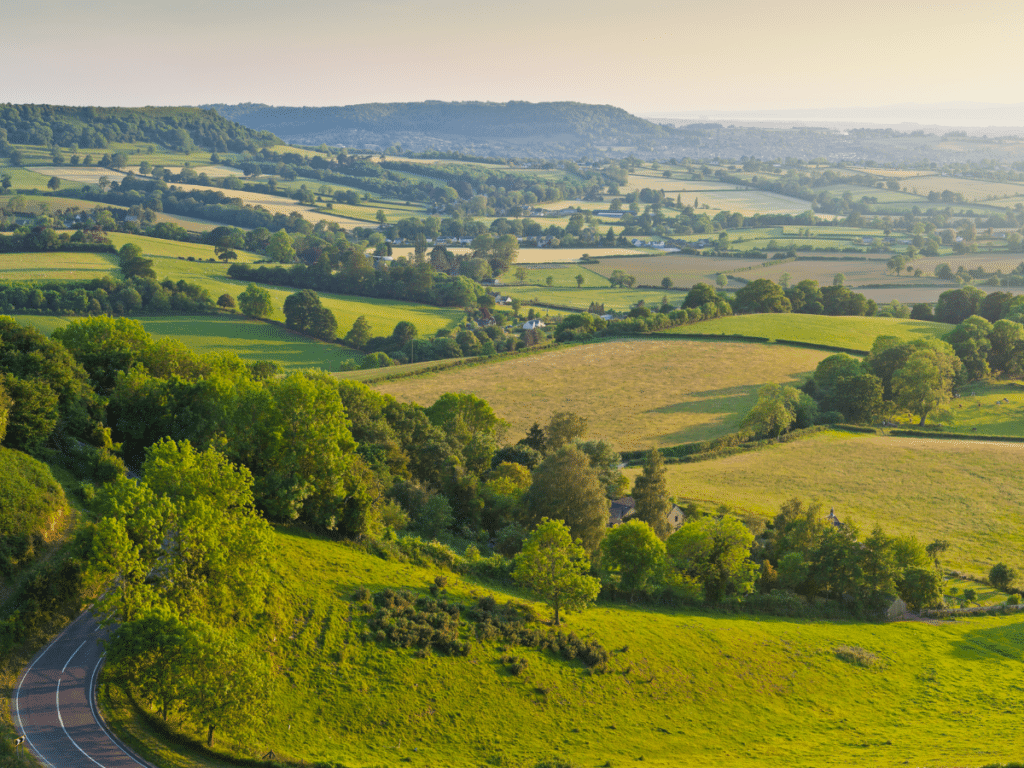Following John Lawton’s ‘Making Space for Nature’ report, presented to the government in 2010, we’ve been aware of the need of habitats to function around the principle of connectivity. Nature requires landscapes to be joined up by mosaics and corridors of habitats, so as to allow movement of species, and to ensure biodiversity prospers. If we are to place this idea into practice, then thinking at the landscape level is imperative. Farmer facilitation groups were a big step in this direction. Today, landscape projects are emerging across the entire land management sector, from the National Trust to Wildlife Trusts right across the country.

As the ELMs test and trials continue, and more get under way, perhaps the most dominant theme is that of landscape recovery. Instead of focusing at the individual farm or holding level, the restoration of biodiversity and habitat is increasingly being considered in terms of community, connectivity, and collaboration. That is to say, how can we enhance the efforts of individuals to ensure that positive change on the land is maximised? This is no easy task, and co-ordinating land management at this scale is clearly complex. As a result, the role played by facilitators in ensuring the success of these schemes is all the more apparent. The need for a central point to analyse, intervene and co-ordinate will be essential in creating a thriving and biodiverse landscape.
This is where facilitation groups become so important. In joining a group, neighbouring farmers can plan their local nature recovery together, working out key intervention and recovery strategies that ensure mutual benefit for all. Rather than simply improving their own farms, facilitators must empower individual landowners to see how they can directly contribute to regional ecological value and secure funding for doing so. As Jenny Phelps MBE, Lead Facilitator for the Upper Thames area at FWAG SW, puts it; “Working together with groups of farmers across landscapes and catchments will enable co-investment from catchment and local nature partnerships, enabling blended finance models to be developed to build community resilience to climate change”.

Underpinning all of these efforts, though, is the need for data to understand and read the landscape. By empowering facilitation groups with more data, insight and opportunities, they become better placed to make collective land use decisions. Land App provides facilitation groups with key digital mapping and spatial analysis, preparing the group for financial support to implement sustainable baselines and land management plans – subsequently unlocking capital for projects that benefit the natural landscape going forward.

Once the baseline and land management plans for group members are complete, this information can be aggregated through the “Map of Maps” function, allowing facilitators to see baselines and plans across their entire project area as one. From here, facilitators are able to review land use insights and design landscape-wide interventions using our cutting-edge dashboards.
As much as the dashboards analyse the landscape as a whole, they simultaneously represent an important step in moving toward a Lawton-based approach to land management. Such a future is to be defined by communication. Instead of isolated islands of land and individual decisions, cutting-edge metric dashboards encourage us to think in terms of regionality, interconnectivity and community. The possibilities such an approach can produce are undeniable. It represents a transition toward a diverse and blended funding stream, where both private and public organisations seek to invest in the natural world. Lawton proposed a landscape driven by transcending our preconceptions of fixed borders, encouraging knowledge exchange and connectivity. Such a vision can only be designed together.

What’s next?
At 1pm on the 28th October, Land App is hosting a free Zoom webinar where we will be exploring how our platform is here to help facilitators and how it is currently working to support a range of landscape projects across the country. Register here.
If you are reading this after the 28th, the recording of this webinar will be available on our YouTube channel. Please feel free to have a watch!
Facilitators also have the opportunity to join the Rural Facilitator Course, hosted by Ruralink, developed in collaboration with the GREAT Project and the Farming and Wildlife Advisory Group (FWAG) and is delivered in person by Jenny Phelps MBE.
Taught over three incremental modules, this course gives delegates the Individual, Team and Project level interpersonal skills and knowledge needed to work effectively as a facilitator on rural community projects.
Explore the Rural Facilitator Course here.

